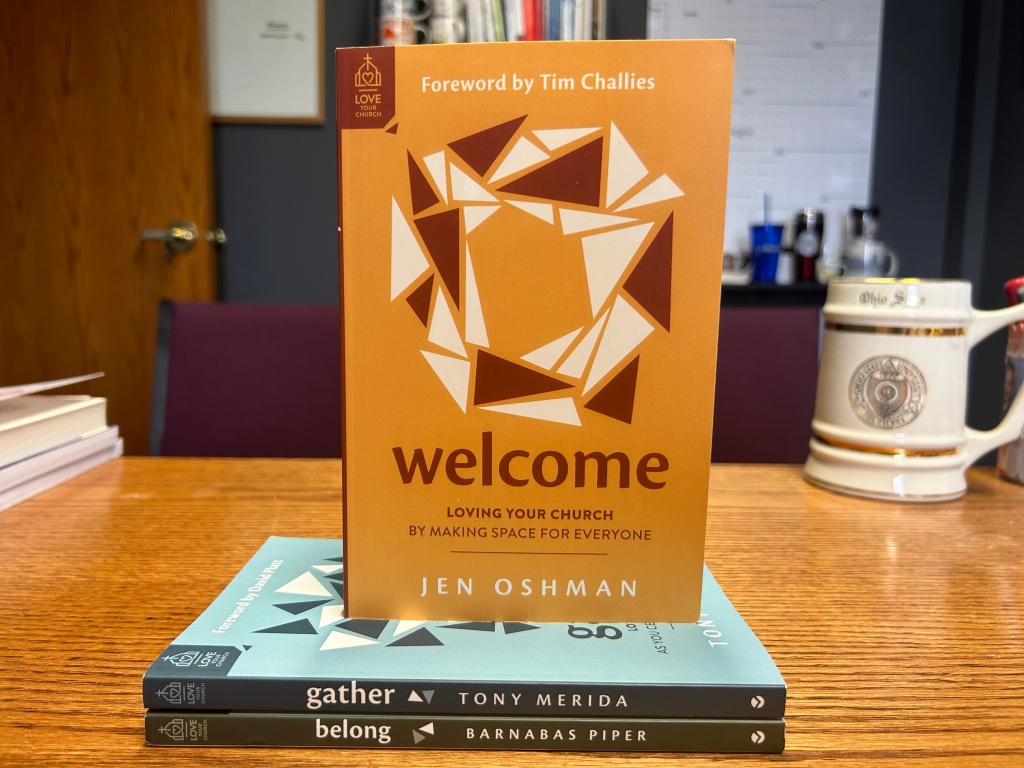
Like a lot of people, Anne and I had grown up in “the church.” We’d both been through the rituals and the rites. We’d both been through variations of “Confirmation.”
We met at a strict evangelical Bible college in 1989 and our experience there was less than satisfactory. To be honest, much of that is our own fault. But that’s another post for another time.
We left that college, were married, and had kids almost immediately (well, 9 months later). We went to church because we were supposed to. Our kids were sprinkled. We tried. Really. We tried.
A move to Savannah Georgia with Best Buy put tremendous weight on what was both a solid (because, Jesus) and a very shaky (because Anne and I were sinfully selfish) foundation. We’d each had enough church to know that the actual fix was Jesus, but had no clue who He was. After a year (-ish) we began looking for Jesus. We visited a few churches, with mixed results.
Then, we moved to Ohio (O-H!). We were looking for someone to watch our children, and Anne called Teresa (This was 1995 and I truthfully cannot remember how this worked pre-internet). She told Anne that her daycare was full, and that was that.
The way Teresa tells it, as soon as she hung up the phone, “God told her” that she had to take our kids. She called Anne back, told her the story, and off our kids went.
Then, Teresa did something outrageous.
She invited us to church.
Because I was living the best retail life ever, this meant Anne went way more than me.
Teresa met Anne in the parking lot.
Teresa carried our kids into the building at MCC.
Teresa carried bags filled with all the stuff that goes with kids into MCC.
Teresa took Anne and the kids to the nursery and children’s ministry area.
Teresa sat with Anne.
Teresa answered Anne’s questions.
Teresa introduced us to her imperfect family. She never once appeared to be better than us. She never “put on airs.”
And, as we met the pastors and others within the church, neither did they.
They were real and regular people. They were redeemed by Jesus to be sure. They were works in progress.
They invited us into their study groups and homes. We ate meals together.
They preached and taught the Bible, and we were confused.
They let me ask “Why should I be immersed?” 82 million different ways and never got mad. Not even once.
Now, it wasn’t perfect and I’m sure there were fakers and frauds.
Of course there was…because I was there.
One of Teresa’s sons, Phil, became a Christian and became my best friend (another post, for another time).
I began serving in the church. Our marriage was healed, rescued from the very edge of divorce.
That church was a hospital for sinners, not a museum for saints. It was filled with sick people in need of a doctor. They didn’t forget this.
That church was all about the mission of Jesus- proclaiming the good news, freedom for the prisoner, recovery of sight for the blind, setting the oppressed free, and proclaiming the Lord’s favor.
That church welcomed people. Broken and messed up people. They let us ask questions. We were in crisis and they simply loved us.
That church was made up of people who’d been welcoming by Jesus, so they responded by welcoming others.
That church was compelled by the spirit of Christ. They set aside their own preferences, power, place and position and were obedient.
That church, lovingly obedient, merciful, and gracious, is the reason I’m in ministry today.
And here’s the deal…there are millions of “me’s” out there, waiting to be invited, waiting to be loved, served, and taken seriously.
God’s telling us to take them in.
Let’s do it.

